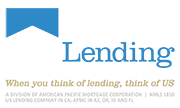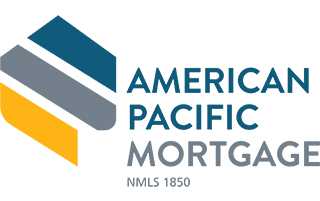FHA (Federal Housing Administration) Loans
There are many types of home mortgage loans out there. For first-time buyers as well as those who have had some financial trouble in the past, qualifying for home loans with favorable terms can be challenging. FHA (Federal Housing Administration) loans* were developed for this very reason.
What is an FHA Loan*?
FHA loans* are home mortgage loans insured by the federal government. Because it’s less risky for lenders to provide borrowers with FHA loans* (since they are insured by the government), it’s easier for borrowers to qualify for them compared to traditional home mortgage loans. The terms are generally more favorable as well, even for borrowers with less than stellar credit scores.
To find out if you are eligible for an FHA loan*, or to get more information about FHA loans* in general, contact one of our loan specialists at US Lending Co today.
*Other restrictions and guidelines apply. Please contact lender for full program details.
Who are FHA Loans Best For?
Lenders are very careful in approving loans to borrowers. They review a borrower’s ability to pay and financial responsibility by looking at their credit history, credit score, employment, and debt-to-income ratio. Borrowers who have had some financial issues in the past from unpaid debts or bankruptcies often have difficulties securing a mortgage or finding favorable terms even if they are currently financially secure and capable.
Since FHA loans* are federally insured, such borrowers will have a much easier time being approved. Younger borrowers who may have secure employment but lack a substantial credit history can take advantage of FHA loans*. An FHA loan* can also be a good option for borrowers who don’t have the funds for a large down payment.
Unique Details of an FHA Loan*
The following are some of the unique details that make an FHA loan* worth looking into for many borrowers.
Example FHA*: Loan amount $300,000, 3.5% down, APR 5.395%
Monthly payment without taxes & insurance: $1,501.74, FHA monthly MI: $211.00.*
FHA Loan* Requirements in California
Although FHA* loans are much easier to qualify for than traditional home mortgages, there are still a number of requirements that must be met for borrowers to eligible. These requirements include the following:
Maximum Loan Amounts
The amount of an FHA loan* is limited based on where in California the borrower resides. Homebuyers should look up the county in which they plan to live to identify what the FHA loan* limits are.
The size of the home being purchased (such as whether it’s a single-family home, duplex, tri-plex, or four-plex) has some bearing on the maximum loan amounts as well.
FHA Loans & Mortgage Insurance
Due to the low down payment requirements, mortgage insurance is required. Mortgage insurance of 1.75 percent is required upfront but is added to the loan amount.
Following that initial payment, borrowers will have to pay a monthly mortgage insurance rate ranging between .15% and.75% depending on the loan and terms*.
FHA Loan FAQ
Here is some more helpful information concerning FHA loans in California:
For loan examples and more information visit our disclosure page at https://uslendingcompany.com/disclosures/






